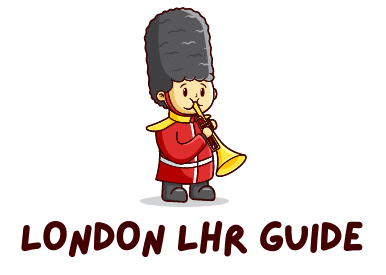If you’ve ever been to or lived in London, you may have noticed that the pubs close their doors much earlier than the busy nightlife of other major cities.
Pubs in London frequently close early due to the city’s unique social milieu, as well as to its history, traditions, and legal requirements.
Contents
- 1 What Are The Normal Closing Times For Pubs In London?
- 2 What Does “Last Orders” Mean In London Pubs?
- 3 When Did Pub Hours Change?
- 4 What Historical Causes Have Influenced This Early Closing Custom?
- 5 How Do Licensing Laws Influence Pub Closing Times Today?
- 6 Are There Any Advantages To Keeping Early Closing Times?
What Are The Normal Closing Times For Pubs In London?
The closing time of London Pubs is 11 o’clock for pubs in London.
This is mostly based on laws that were passed to control public drinking and behavior.
A fair balance between evening activities and the general public is maintained by the regulations, which are developed and implemented by municipal councils.
What Does “Last Orders” Mean In London Pubs?
When it’s almost time for the pub to close, the staff shout “last orders,” ring a bell behind the bar, or flash the lights.
Thus, you have roughly 15 minutes to purchase any last-minute alcoholic beverages before the bar (and shortly thereafter, the pub) closes for the evening.
When Did Pub Hours Change?
The permitted operating hours for pubs have evolved over time.
Pubs in the UK used to typically close at 10.30 p.m., but in November 2005, legislation was approved allowing them to stay open until 11 p.m.
In England and Wales, these regulations went into effect in 2006.

Pubs and other companies can now apply for longer opening hours up to 1:00 am on Thursdays and Fridays and 2:00 am on Saturdays under a further amendment to the Licensing Act 2003 that took effect in July 2009. Later, it was expanded to also cover Sunday.
Since then, a number of establishments have received licenses allowing them to remain open on Fridays and Saturdays until 4:00 a.m.
However, the government determined that pubs would have to pay more for longer hours past 11:00 pm in 2015 after reviewing the Licensing Act.
Additionally, local councils were given more authority to decide on pub opening hours in their jurisdictions and to reject requests for later hours if they were thought superfluous or against the general good.
As a result, it is usually important to verify with the venue in advance as different pubs in different localities may have varied opening hours.
What Historical Causes Have Influenced This Early Closing Custom?
The World War I Defense of the Realm Act (DORA) of 1916 is where the practice of early shutting originated.
The goal of the ordinance was to prevent excessive drinking and maintain sobriety among those employed in weapons plants and other wartime industries.
Despite DORA’s long-standing repeal, its effects on pub closing times have persisted.
How Do Licensing Laws Influence Pub Closing Times Today?
Theoretically, permissible hours are always available; in fact, there are several premises licenses that permit 24-hour operation.
While the majority of licensed establishments do not extend their hours to this extent, several did in 2005 when they sought licenses that extended their hours.
Licensees are not required to use the entire amount of time that is given to them, as there was in the past.
The majority of the week, businesses that still close at 23:00 have licenses that may allow them to stay open for several hours or even longer.
Therefore, if the licensee chooses to do so, staying open past 23:00 is permitted at such premises. When the license’s closing hour comes, alcohol service must end as well. The only person who enjoys total freedom in this regard is the owner of the rather uncommon real “24-hour” license.

According to the new Licensing Act, drinking alcohol is not a “licensable activity” in and of itself. As a result, “drinking-up time” (DUT) has no longer any legal significance.
In the past, customers could still drink what they had already purchased up until 23:20, subject to the licensee’s discretion, thanks to a legal dispensation that allowed alcohol consumption to continue after the official closing time for ten minutes (and later extended to twenty minutes). Following that, time consumption had to come to an end.
This concession lost its relevance when conventional permissible hours were eliminated, and the 2003 Act makes no reference to DUT.
Instead, applicants for premises licenses can designate in their Operating Schedule the maximum amount of time (their “Opening Hours”) for which they want to permit their clients to stay after the hour at which the sale of alcohol finishes (“the terminal hour”).
Some licenses do not even list opening hours, allowing for any time to be consumed, at the licensee’s own discretion.
Are There Any Advantages To Keeping Early Closing Times?
The regulations were developed to stop antisocial behavior and drunken and disorderly behavior, both of which are frequently observed in the vicinity of locations where a lot of people are drinking in public.

Limiting the amount of time that individuals can drink in public makes it easier to make sure that everyone can enjoy their experiences and respect their surroundings.
The early closing time not only serves to maintain public safety but also public health because drinking and staying out too late can have detrimental consequences on one’s health and general well-being.

